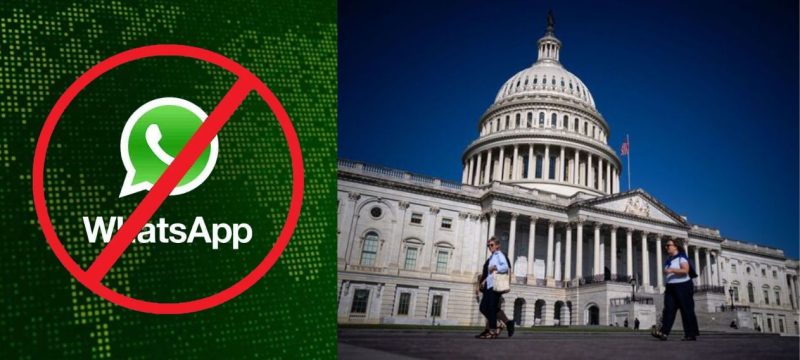The U.S. House of Representatives has officially prohibited the use of Meta Platforms’ messaging app WhatsApp on all House-issued devices, citing security and privacy concerns. A memo distributed to House staff on Monday outlined the decision, which was made based on recommendations from the Office of Cybersecurity.
According to the notice, WhatsApp was labeled a “high risk” application due to its insufficient transparency regarding data protection practices, lack of end-to-end encryption for stored messages, and the potential security threats it poses to users.
Read more: WhatsApp Introduces New AI Writing Assistant That Could Be Smarter Than You
The directive, issued by the chief administrative officer of the House, advised staff to instead use alternative messaging platforms such as Microsoft Teams, Amazon’s encrypted app Wickr, Signal, and Apple’s iMessage and FaceTime—all of which are considered more secure by the cybersecurity office.
In response, Meta strongly opposed the decision. A spokesperson for the company stated that WhatsApp offers stronger security than some of the approved alternatives and defended the platform’s privacy features.
This development follows previous incidents that have raised concerns about WhatsApp’s vulnerabilities. In January, a WhatsApp official revealed that Israeli spyware firm Paragon Solutions had targeted numerous users, including journalists and civil society activists.
The House has a history of banning applications over data security issues. Notably, in 2022, the short-form video app TikTok was barred from all House-managed devices for similar reasons.
As the cybersecurity landscape continues to evolve, government institutions are increasingly scrutinizing digital platforms to minimize risks to sensitive information.









